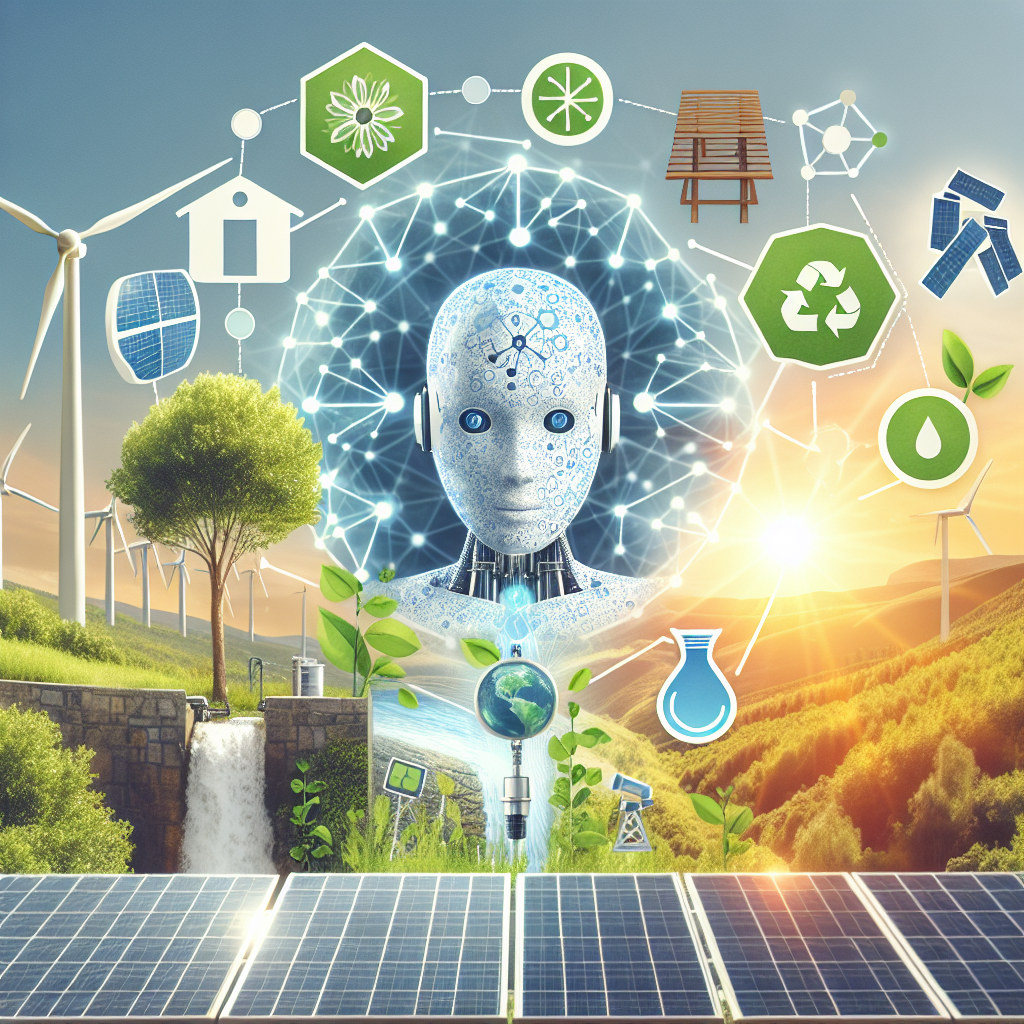AI in Renewable Energy: A Game-Changer for the Environment
Introduction
Artificial Intelligence (AI) has revolutionized various industries, including renewable energy. AI technologies have the potential to transform the way we harness and utilize renewable energy sources, making them more efficient, cost-effective, and sustainable. With the increasing global focus on reducing carbon emissions and combating climate change, AI in renewable energy has emerged as a game-changer for the environment.
AI in Renewable Energy
AI technologies are being increasingly integrated into renewable energy systems to optimize performance, increase energy production, and reduce operational costs. One of the key areas where AI is making a significant impact is in the optimization of renewable energy generation. By analyzing vast amounts of data in real-time, AI algorithms can predict energy demand, optimize energy production, and manage energy storage more effectively, leading to increased efficiency and reduced waste.
For example, AI-powered predictive maintenance systems can help identify and address potential issues in renewable energy systems before they lead to costly downtime. By analyzing data from sensors and other sources, AI algorithms can detect patterns and anomalies that indicate equipment failure or performance degradation, allowing operators to take proactive measures to prevent outages and optimize system performance.
AI is also being used to optimize the design and operation of renewable energy systems. By simulating various scenarios and analyzing data from different sources, AI algorithms can help engineers and designers optimize the layout of solar panels, wind turbines, and other renewable energy infrastructure to maximize energy production and efficiency. AI can also optimize the operation of renewable energy systems by adjusting parameters in real-time to respond to changing weather conditions, energy demand, and other factors.
AI technologies are also being used to improve energy storage systems, which are essential for maximizing the efficiency and reliability of renewable energy sources such as solar and wind power. By analyzing data from sensors and other sources, AI algorithms can optimize the charging and discharging of batteries, predict energy demand, and manage energy storage systems more effectively, leading to increased efficiency and reduced costs.
Benefits of AI in Renewable Energy
The integration of AI technologies into renewable energy systems offers a wide range of benefits, including:
1. Increased Efficiency: AI algorithms can optimize the design, operation, and maintenance of renewable energy systems, leading to increased efficiency and reduced waste.
2. Cost Savings: By optimizing energy production, storage, and distribution, AI technologies can help reduce operational costs and improve the return on investment for renewable energy projects.
3. Environmental Benefits: By increasing the efficiency of renewable energy systems, AI technologies can help reduce carbon emissions and combat climate change, making them a key tool in the transition to a more sustainable energy future.
4. Scalability: AI technologies can be scaled up to meet the growing demand for renewable energy, making them a key enabler of the transition to a more sustainable energy system.
5. Reliability: By optimizing the design and operation of renewable energy systems, AI technologies can improve their reliability and resilience, leading to a more stable and secure energy supply.
FAQs
1. What is AI in renewable energy?
AI in renewable energy refers to the use of artificial intelligence technologies to optimize the design, operation, and maintenance of renewable energy systems such as solar, wind, and hydropower. AI algorithms analyze data in real-time to predict energy demand, optimize energy production, and manage energy storage more effectively, leading to increased efficiency and reduced costs.
2. How does AI optimize renewable energy systems?
AI optimizes renewable energy systems by analyzing vast amounts of data from sensors, weather forecasts, energy markets, and other sources to predict energy demand, optimize energy production, and manage energy storage more effectively. By simulating various scenarios and adjusting parameters in real-time, AI algorithms can help engineers and operators maximize the efficiency and reliability of renewable energy systems.
3. What are the benefits of AI in renewable energy?
The integration of AI technologies into renewable energy systems offers a wide range of benefits, including increased efficiency, cost savings, environmental benefits, scalability, and reliability. By optimizing the design, operation, and maintenance of renewable energy systems, AI technologies can help reduce carbon emissions, combat climate change, and transition to a more sustainable energy future.
4. How can AI help improve energy storage systems?
AI can help improve energy storage systems by analyzing data from sensors, weather forecasts, and other sources to optimize the charging and discharging of batteries, predict energy demand, and manage energy storage more effectively. By adjusting parameters in real-time, AI algorithms can maximize the efficiency and reliability of energy storage systems, leading to increased energy security and stability.
Conclusion
AI technologies are transforming the renewable energy sector, offering new opportunities to optimize energy production, reduce costs, and combat climate change. By analyzing vast amounts of data in real-time, AI algorithms can predict energy demand, optimize energy production, and manage energy storage more effectively, leading to increased efficiency and reduced waste. With the increasing global focus on reducing carbon emissions and transitioning to a more sustainable energy future, AI in renewable energy has emerged as a game-changer for the environment, offering a wide range of benefits for both the planet and society as a whole.

